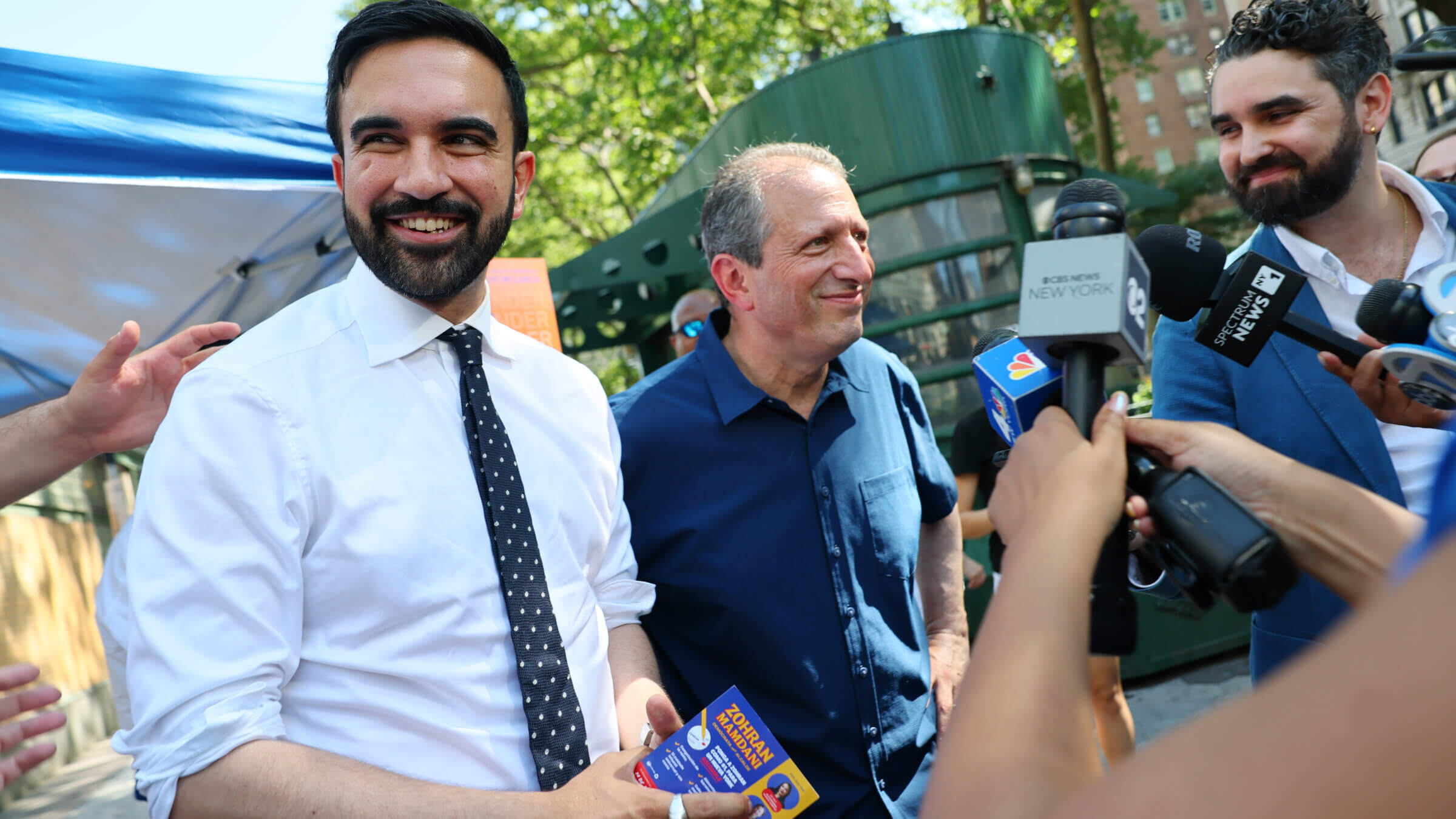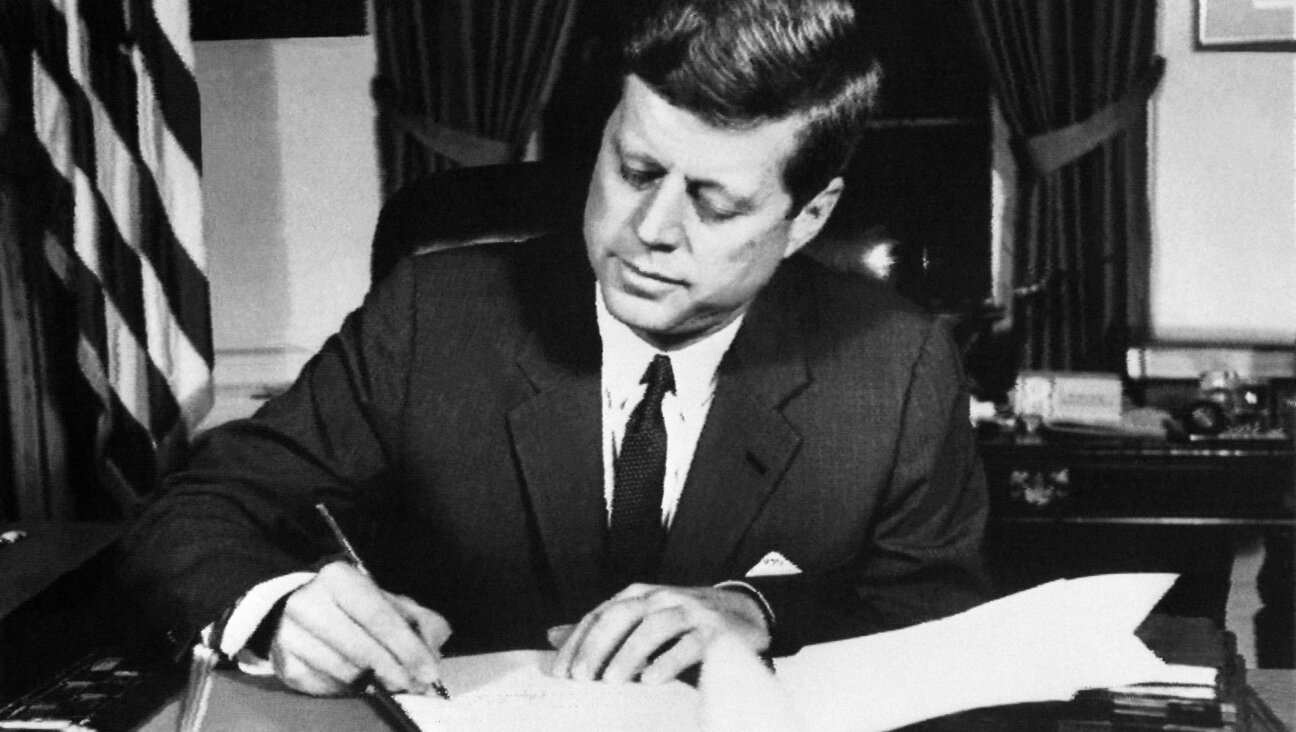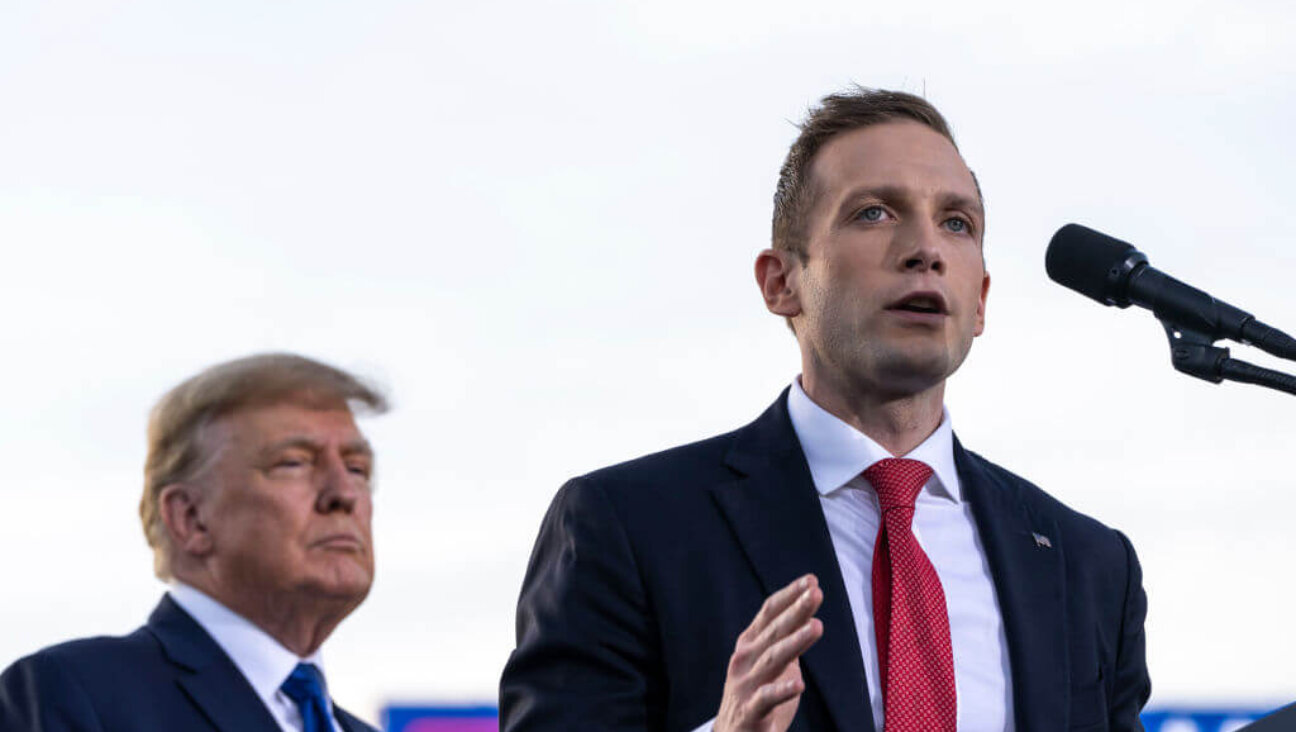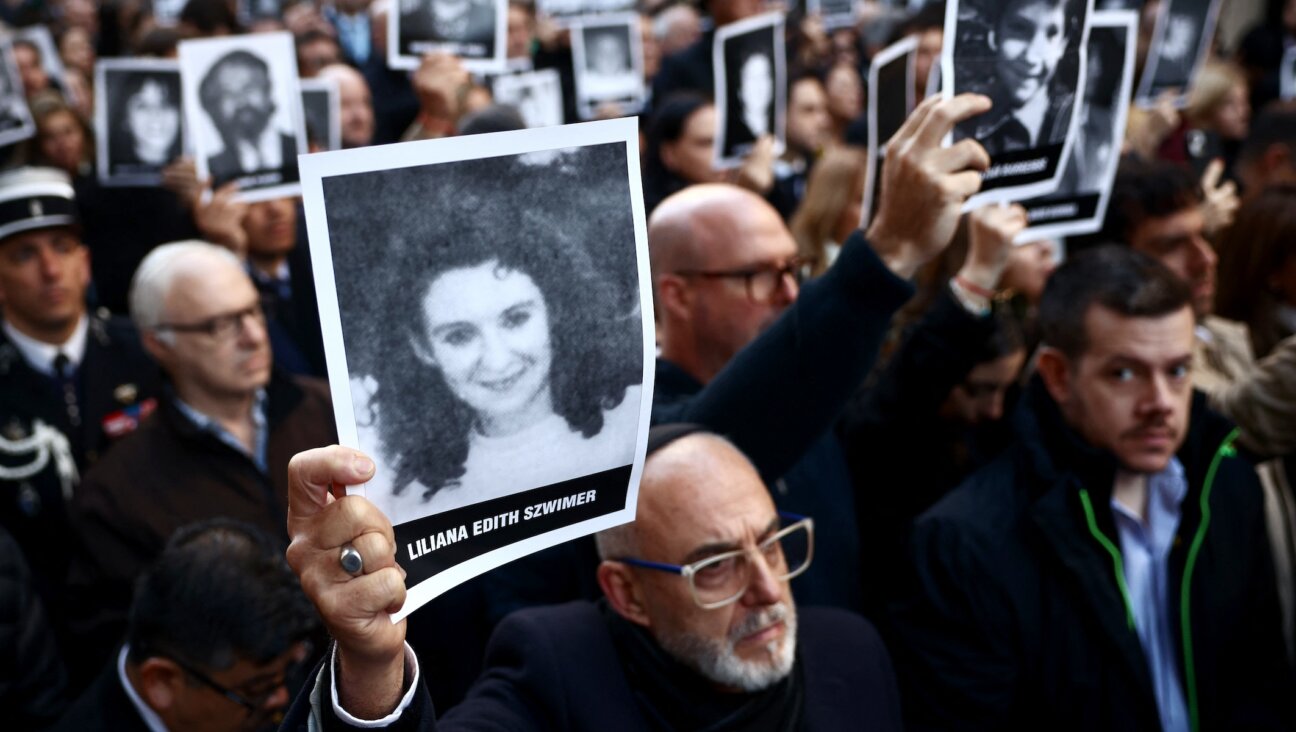After Zohran Mamdani’s upset, there’s a way forward for pro-Israel progressives
In the fight for economic fairness for all, Jews shouldn’t have to give up on defending their particular interests, writes a long-time contributor to Dissent magazine

Zohran Mamdani walks with Brad Lander, the highest-ranking Jewish official in New York City who co-endorsed with Mamdani in the ranked choice primary. Photo by Michael M. Santiago/Getty Images
(JTA) — Zohran Mamdani’s victory in the New York mayoral primary puts into sharp relief the political dilemma that faces the broad center of American Jewry.
We want the State of Israel to endure and prosper as a democracy, and we want a United States where tolerance, justice and democracy flourish. As a minority, we need partners to make progress. But partners on some issues are our foes on others.
This is a difficult dilemma, but not as difficult as it seems. There is an opening for a renewed Jewish progressivism that defends Jewish interests as it pursues social justice.
A prevalent misreading of the political scene makes that opening hard to see. As the far left, big-money campaign donors and lazy political reporters all like to describe it, Democrats are split between a monolithic “moderate” establishment and progressive outsiders. Either you give up on social justice, or you fall in line behind anti-Israel activists.
The outcome of last Tuesday’s mayor primary in New York City might seem to support that, but the reality is messier and more promising. While it’s crystal clear that Mamdani is no friend of Israel, that’s not what won him the election. He campaigned and won on economic populism.
Democrats are split over economic populism, in ways that the establishment-outsider dichotomy only obscures. Moderate-labeled legislators like Chris Murphy and Chris DeLuzio have joined with the leader of the Progressive Caucus, Greg Casar, in calling on the party to downplay issues of culture and identity and champion the interests of the many against the super-rich.
As Murphy, DeLuzio and Casar point out, the economic woes that fueled Mamdani’s victory are felt across the country, by voters left and right. Fifty years of growing inequality, declining union membership and deindustrialization have pushed workers out of the middle class. Even for the affluent, housing and health care are getting harder to access and harder to pay for.
In this context, walking away from the historic Jewish commitment to social justice for all is not just morally wrong. It also fails to protect our own interests. As the stunning collapse of Andrew Cuomo’s campaign illustrates, defense of the status quo is a losing political strategy. The Jewish community must rethink its progressivism, not abandon it.
It’s a Jewish tradition to look to our own past when faced with new problems. In the first half of the 20th century, the Jewish social democratic and labor movement developed a distinct political outlook. Their thinking has much to teach us today.
Then as now, democracy was under attack and antisemitism was an immediate threat. In response to those challenges, the movement elaborated three basic doctrines:
- A left coalition organized around common interests in economic fairness, uniting poor and middle class against the economic elite. The union movement is central to that coalition.
- An unwavering commitment to democracy, backed up with outspoken criticism of its enemies on both the right and the far left.
- Jewish solidarity within a broader democratic left.
This is not a laundry list. It is a coherent theory of social progress.
A coalition built around common economic interests is a necessity for redistributing economic wealth and political power. It is also the most effective means of overcoming prejudice and discrimination. Working together toward common goals combats hate more effectively than denunciations and confessions.
For the immigrant generation and their children, achieving economic security and freedom from discrimination was not a “privilege” that needed to be “checked.” It was a right to be enjoyed by poor and middle class alike.
Labor unions were and are central to winning and defending these rights. The New Deal wave of organizing raised workers into the middle class economically and empowered them politically. In the rising industrial unions, the experience of common struggle built alliances across ethnic and racial barriers.
Alongside collective bargaining, economic security is achieved through universal government services like Social Security, public schools and libraries. Social democrats are wary of means-testing. Programs that serve the poor alone, motivated by charity rather than common interest, are at best politically vulnerable. At worst, they undermine the progressive coalition by sowing discord between those at the bottom and those just above them.
Similarly divisive is the now-fashionable concept of “allyship.” Too often, allyship means-tests human rights. Targets of hatred who are insufficiently downtrodden — Jews in particular — are classed among the privileged and not the victims. The duty of the privileged, they are told, is to support the demands issued by the oppressed, not to exercise their own judgment or defend their own interests.
When allyship shuts down debate, the loudest and most extreme voices crowd all others out. The police must be defunded, not made accountable. “Intifada revolution” supplants the two-state solution.
This political pathology is not confined to the far left. In much of the liberal establishment, on campus and elsewhere, a politics of charity (or worse, guilt) prevails. Jews hold privilege, the thinking goes, so their complaints are unworthy of concern — an attitude that jumps out of the sneering text messages exchanged by Columbia University administrators during last year’s campus crisis.
The Jewish labor movement believed in solidarity, a solidarity based not on charity but on shared interests and mutual respect. They never allowed their own voices to be stilled.
Those voices were raised in defense of freedom against its foes on all sides. The Jewish labor movement knew that democracies are the only reliable allies for workers and for Jews. Their rejection of autocrats on the left and right alike can be a model for our time.
Over the last half-century, as Jews grew more affluent and more secure, we came to think of social action as something we do for others. That is no longer tenable after Oct. 7, and not just because our own interests are in need of immediate defense.
Charity-based politics, in both its establishment and ultra-left versions, aims to lift up the very bottom. Under its strict doctrine, the middle gets no help — less needy than those below them, and a threat to the power and wealth above them.
Throughout history, Diaspora Jews have been in the middle, and that is where our community is now. Far from secure, yet mostly affluent, we need solidarity, not charity.
The heritage of the Jewish labor movement points the way to a renewed progressivism that defends freedom and seeks economic fairness for all. A politics of solidarity that brings together the middle class and the disadvantaged would undercut bigotry and legitimate Jewish self-assertion. It would give Jews firm ground to stand on, working with a future Mayor Mamdani when they agree and pushing him when they disagree.
And, as the New York primary teaches, it is a politics that can win elections, keep America free, and make it more equal.
The views and opinions expressed in this article are those of the author and do not necessarily reflect the views of JTA or its parent company, 70 Faces Media.






















